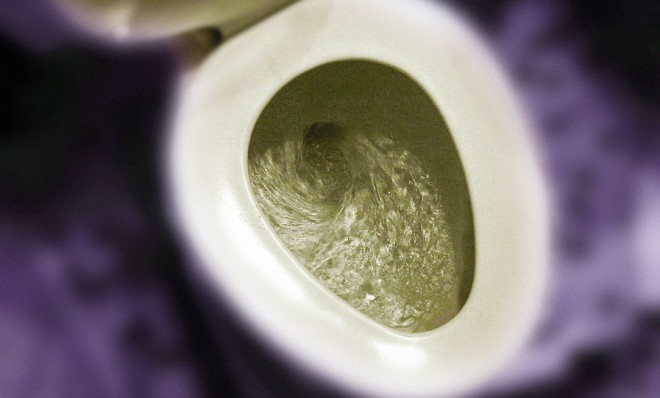Why no city is safe from the fatberg
Officials discover a 16.5-ton ball of congealed grease and wet wipes lurking in London's sewers

A free daily email with the biggest news stories of the day – and the best features from TheWeek.com
You are now subscribed
Your newsletter sign-up was successful
On Tuesday, utility officials announced the discovery of a 16.5-ton "fatberg" composed of congealed fat and wet wipes blocking the sewers underneath the Kingston neighborhood in southwest London.
"Given we've got the biggest sewers and this is the biggest fatberg we've encountered, we reckon it has to be the biggest such berg in British history," Gordon Hailwood, waste contracts supervisor for Thames Water, said in a statement. "If we hadn't discovered it in time, raw sewage could have started spurting out of manholes across the whole of Kingston."
The bus-sized fatberg got so big that it reduced the sewers to only 5 percent of their normal capacity, and damaged them so badly it will take Thames Water six weeks to repair them.
The Week
Escape your echo chamber. Get the facts behind the news, plus analysis from multiple perspectives.

Sign up for The Week's Free Newsletters
From our morning news briefing to a weekly Good News Newsletter, get the best of The Week delivered directly to your inbox.
From our morning news briefing to a weekly Good News Newsletter, get the best of The Week delivered directly to your inbox.
As the masses on Twitter have noticed, the fatberg is indeed disgusting. But could it happen in a sewer near you?
Yes, mostly because the materials that caused London's fatberg — wet wipes and food fats — are increasingly clogging up America's sewers as well. Last month, USA Today reported that cities across the United States were complaining about disinfectant wipes gumming up their sewer systems.
The problem is that some are marketed as being both disposable and flushable, while being made up of a cloth-like material that doesn't easily break down.
"Ideally, what we'd like to see flushed down the system is just toilet paper," Marty Sunderman, superintendent for Sauk Centre, Minn., told USA Today. "When you put these type of rags down there, they don't come apart. They just stay with it all the way to the pumps."
A free daily email with the biggest news stories of the day – and the best features from TheWeek.com
Officials from Raleigh, N.C., Grand Rapids, Mich., and other cities have also complained about the wipes.
Another problem: Fat, oil, and grease (FOG) deposits, which account for 40 percent of sewer blockages in the United States.
As anyone who has ever cooked bacon knows, fat, oil, and grease are liquid when hot, but solidify when left to cool — like, say, inside of a sewer.
"Fats and wet wipes together are just a recipe for disaster," Craig Rance, press officer at Thames Water, told NBC News. "The stuff may disappear down the drain, but down in the sewers, a bit of fat will catch and a wet wipe will add on to it and it will catch and catch and catch."
Keith Wagstaff is a staff writer at TheWeek.com covering politics and current events. He has previously written for such publications as TIME, Details, VICE, and the Village Voice.
-
 6 of the world’s most accessible destinations
6 of the world’s most accessible destinationsThe Week Recommends Experience all of Berlin, Singapore and Sydney
-
 How the FCC’s ‘equal time’ rule works
How the FCC’s ‘equal time’ rule worksIn the Spotlight The law is at the heart of the Colbert-CBS conflict
-
 What is the endgame in the DHS shutdown?
What is the endgame in the DHS shutdown?Today’s Big Question Democrats want to rein in ICE’s immigration crackdown